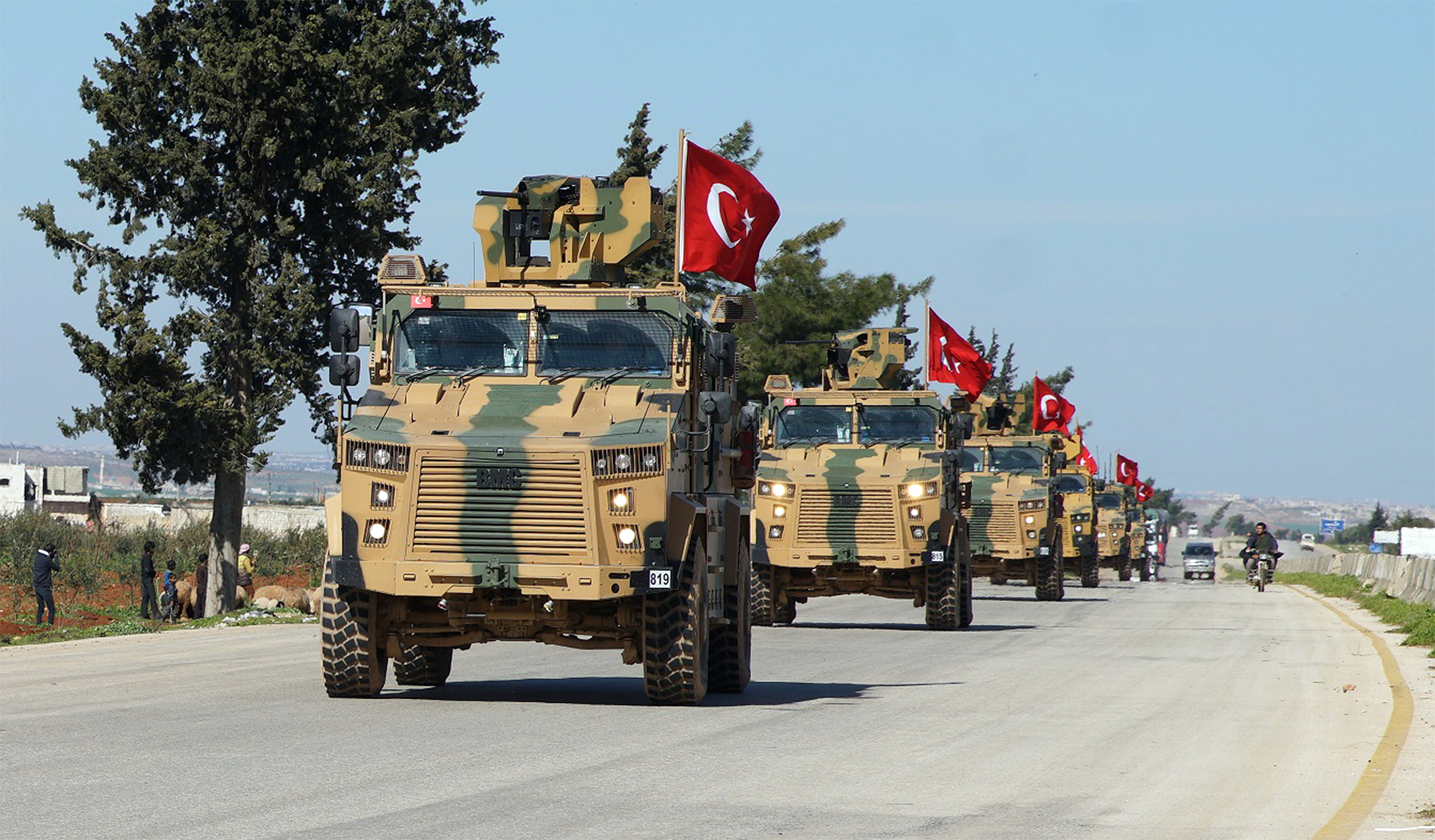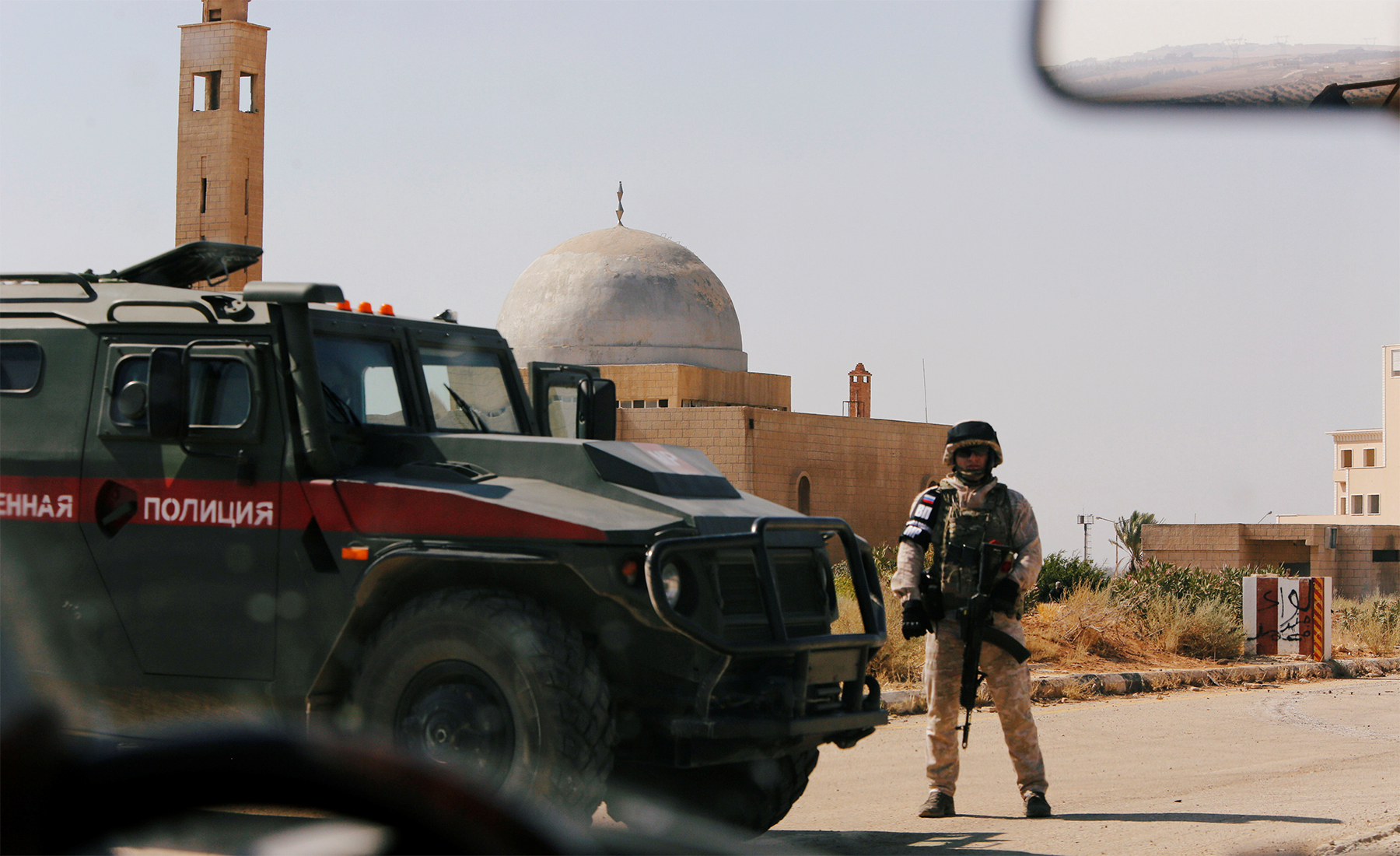The rapid advance of Bashar al-Assad’s troops in Idlib put Turkey in a difficult situation. On the one hand, Ankara recognizes Hayat Tahrir al-Sham (HTS) as a terrorist organization. At the same time, its defeat in the northwestern province of Syria weakened Turkey’s position in the region because both HTS and Turkey oppose Asad’s military advance. Ankara is well aware that the Syrian Arab Army (SAA) will not stop on the capture of Khan Sheikhun and will move further to the north. And that Damascus will push out not only the HTS but also the pro-Turkish opposition. If this succeeds, there will be four threats to Turkey’s security.
First of all, Ankara will have to remove its 12 observation posts. One of them Morek after the capture of Khan Sheikhun is currently surrounded. Recently the advisor to Assad Bouthaina Shaaban threatened to eliminate Turkish bases. Secondly, as a result of hostilities in Idlib, a million refugees still may flow into southeastern Turkish provinces, which will place a heavy burden on the Turkish economy, already weakened by the US and EU [2] sanctions. Thirdly, the defeat in Idlib jeopardizes Turkey’s leverage in neighboring Afrin and Al-Bab. With the help of Russia and Iran, Assad will demand the withdrawal of Turkish troops from these regions too. Lastly, the escalation of the Turkish-Syrian relations will negatively affect the Russian-Turkish relations. Turkish Prime Minister Mevlut Cavusoglu has already warned Damascus “not to play with fire.” Turkey, as the second military power in NATO, can give a harsh response to the further advancement of the SAA in Idlib.
Turkish President Recep Tayyip Erdogan realizes all these risks, and that is why the day after the capture of Khan Sheikhun announced an urgent one-day visit to Russia. This summit planned for August 27, 2019, is supposed to be the most “difficult” meeting with Vladimir Putin for Erdogan since the crash of the Russian Su-24 fighter. The Sochi deal, signed a year ago, presuming the creation of a demilitarized zone is dead now. The truce is de facto non-existent. Moscow blames HTS, Damascus blames Ankara, and Ankara accuses SAA. Whoever is right, the advantage is now on the side of Assad and Putin. After all, nothing prevents the SAA with the support of the Russian Air Forces to advance further.
At a meeting with Putin, Erdogan will supposedly try to achieve two objectives. First, he must arrange the safe evacuation of his military from the observation post Morek. The second approach is the strategic one. The Turkish president needs to persuade Putin to stop the advance of the SAA and reach another truce agreement. Ankara needs a new deal to replace failed Sochi-deal.
The rapid advance of Bashar al-Assad’s troops in Idlib put Turkey in a difficult situation. On the one hand, Ankara recognizes Hayat Tahrir al-Sham (HTS) as a terrorist organization. At the same time, its defeat in the northwestern province of Syria weakened Turkey’s position in the region because both HTS and Turkey oppose Asad’s military advance. Ankara is well aware that the Syrian Arab Army (SAA) will not stop on the capture of Khan Sheikhun and will move further to the north. And that Damascus will push out not only the HTS but also the pro-Turkish opposition. If this succeeds, there will be four threats to Turkey’s security.
First of all, Ankara will have to remove its 12 observation posts. One of them Morek after the capture of Khan Sheikhun is currently surrounded. Recently the advisor to Assad Bouthaina Shaaban threatened to eliminate Turkish bases. Secondly, as a result of hostilities in Idlib, a million refugees still may flow into southeastern Turkish provinces, which will place a heavy burden on the Turkish economy, already weakened by the US and EU [2] sanctions. Thirdly, the defeat in Idlib jeopardizes Turkey’s leverage in neighboring Afrin and Al-Bab. With the help of Russia and Iran, Assad will demand the withdrawal of Turkish troops from these regions too. Lastly, the escalation of the Turkish-Syrian relations will negatively affect the Russian-Turkish relations. Turkish Prime Minister Mevlut Cavusoglu has already warned Damascus “not to play with fire.” Turkey, as the second military power in NATO, can give a harsh response to the further advancement of the SAA in Idlib.
Turkish President Recep Tayyip Erdogan realizes all these risks, and that is why the day after the capture of Khan Sheikhun announced an urgent one-day visit to Russia. This summit planned for August 27, 2019, is supposed to be the most “difficult” meeting with Vladimir Putin for Erdogan since the crash of the Russian Su-24 fighter. The Sochi deal, signed a year ago, presuming the creation of a demilitarized zone is dead now. The truce is de facto non-existent. Moscow blames HTS, Damascus blames Ankara, and Ankara accuses SAA. Whoever is right, the advantage is now on the side of Assad and Putin. After all, nothing prevents the SAA with the support of the Russian Air Forces to advance further.
At a meeting with Putin, Erdogan will supposedly try to achieve two objectives. First, he must arrange the safe evacuation of his military from the observation post Morek. The second approach is the strategic one. The Turkish president needs to persuade Putin to stop the advance of the SAA and reach another truce agreement. Ankara needs a new deal to replace failed Sochi-deal.
The current visit for Erdogan is psychologically extremely difficult. After all, he goes to ask, not to negotiate. Turkish military can be safely withdrawn only by Russians. Whether there will be a new truce in Idlib also depends on the will of the Kremlin. On the first issue, the parties will likely find a solution without any difficulty. Given the fact that the Russian and Turkish military already have experience of military coordination in Syria. Until the last clashes in Khan Sheikhun, they conducted joint patrols in the demilitarized zone. As for the truce, in the wake of Assad’s military success, Moscow is very tempted to let its ally follow up an advantage.
Even if both sides succeed with truce deal, this will only be another delay of a new confrontation in Idlib with the aim to avoid a new crisis in Russian-Turkish relations. During a year, Turkey hasn’t been able to eliminate the HTS in the province; on the contrary, the terrorists increased their influence. Therefore, the freezing of the conflict will not be fruitful in long-term perspective.
In the current situation, the optimal solution for Turkey is to offer Russia to create a 30 km security zone up to M4 and M5 highways, covering the city of Idlib. Similar to the East Euphrates. In this zone free of HTS, in case of a massive influx of people to the north Turkey will be able to guarantee the placement of refugees. If Turkey manages to create the same zones beyond the Euphrates with the US, then Ankara, which has Afrin and El-Bab, puts under control a thin line along the entire 800 km of Syrian-Turkish border.
The territories outside Ankara’s security zone are automatically assigned to Assad, who can destroy An-Nusra militants here. Assad will not agree with such a move, because he considers both military opposition and HTS as terrorists. However, Erdogan’s initiative could get Putin’s support. For Moscow, the main problem in Idlib is An-Nusra, not opposition. If there are no terrorists in the Turkish safe zone, then the future military campaign of Damascus will lose the legitimacy it had in Khan Sheikhun.






